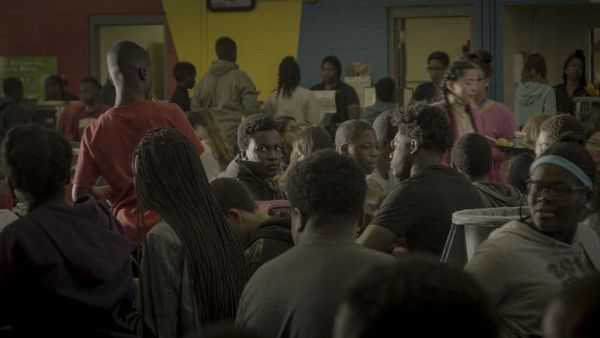Eye For Film >> Movies >> Life And Nothing More (2017) Film Review
Life And Nothing More
Reviewed by: Amber Wilkinson

"I'm here. I'm done," says mum Regina (Regina Williams) near the start of Life And Nothing More. She's talking to her son Andrew (Andrew Bleechington) as they travel to court in the hopes that he can avoid juvenile detention, with the spectre of his jailed father looming in the background. It neatly sums up the tension between mother and son that will permeate the movie, of wanting to be there but simultaneously wanting to escape. But where many movies might purely focus on the coming-of-age aspect, writer/director Antonio Méndez Esparza is just as interested in the stressed-out Regina and the societal and economic pressures that effect and partially shape her relationship with her son.
Esparza takes a naturalistic approach, letting ambient noise remind us of the here and now, observing more than steering the action - a decision that made it a worthy winner of the Independent Spirit John Cassavettes Award this year. This documentary feel is no doubt helped by the fact that this screenplay was developed gradually with his non-professional cast. This means it avoids the usually signposted beats in favour of an altogether more organic development of character and a story that settles gently into shape as you watch it rather than be driven by specific events. Slowly a picture of the toughness of life for Andrew, Regina and her second child Rynesia (Williams' daughter Ry'nesia Chambers) emerges, but this is not a wallow or the latest slice of 'poverty porn', instead Esparza humanstically celebrates the resilience of the family even as he points out the obstacles that have an impact on their relationships. They may be only one major money event away from poverty but this is a portrayal of dearth by a thousand cuts that many working class people face - and not just in America.

Of course, it's not just the economic situation that causes problems for Regina and Andrew, he, in particular, faces additional prejudice because he is African-American. While Esparza's exploration of the passive aggressiveness of white privilege is blisteringly good, he stitches these everyday prejudices into the broader landscape of their lives and his film is richer for it. By taking his time to build the story, he also asks us to consider our own unconscious biases and assumptions.
Bleechington is perfectly cast as Andrew. Intense and introspective, he has the awkwardness common of teenagers, frequently hitching up his pants, his fears often wrongly interpreted as sullenness by those around him. Williams, meanwhile, is ferociously good as his mother, trying to guide her son yet frustratingly - for herself as much as anyone else - often unable to fully process or control her own emotions. She may be a 'non-professional' but she gives a performance as magnetic as any committed to film in 2017 and, I wonder, if this film had been helmed by a US director, whether she might not already have a string of other roles lined up.
A little patience is needed to adjust to the rhythm but those who do will soon find themselves immersed in a tough but, ultimately, gently optimistic film that reminds us that sometimes closure is less important than keeping on keeping on.
Reviewed on: 12 Oct 2018














